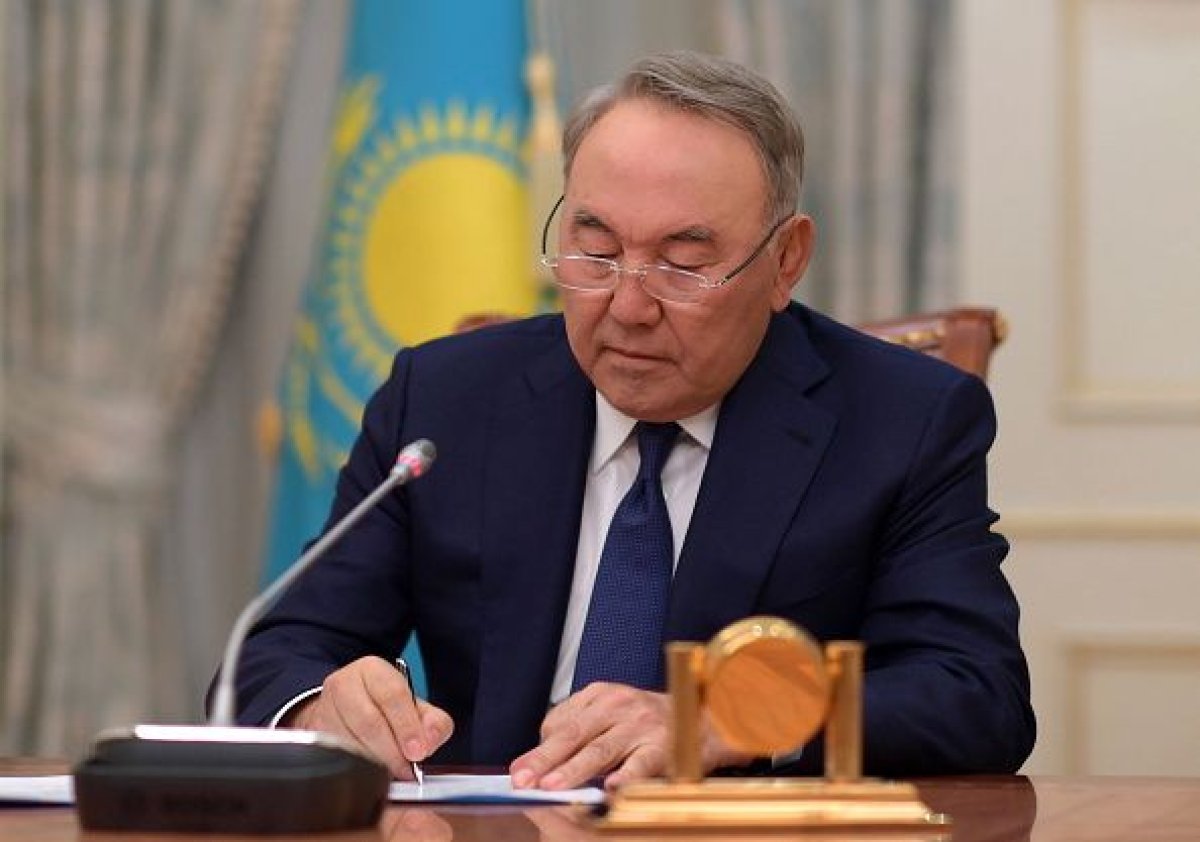A day after Kazakhstan's authoritarian leader Nursultan Nazarbayev resigned after 30 years in power, the country's parliament voted to rename the capital, Astana, after him.
The decision to rename Astana, a city replete with futuristic architecture in the middle of the world's largest steppe, after the only leader an independent Kazakhstan has ever known, was floated by the country's new interim President Kassym-Jomart Tokayev shortly after Nazarbayev's resignation.
President Donald Trump has praised Nazarbayev's leadership skills and said the country's transformation under his rule was a "miracle," according to the Kazakh government's readout of a phone call between the two leaders. The Kazakh leader visited the White House last year, and the two countries agreed to expand their economic ties.
Meanwhile, the organization Human Rights Watch said that Nazarbayev's Kazakhstan "heavily restricts freedom of assembly, speech, and religion, and torture remains a serious problem."
The country's lower house of parliament quickly voted in favor of the proposed name change on Wednesday, and the decision to rename Astana was made official around 24 hours after Nazarbayev surprised the world with his departure. Astana will now be named Nursultan, after the man who ruled the country from the Soviet era until the present day.
The country has already changed the name of its capital several times since it emerged as an independent nation, in the 1990s. But the decision nevertheless marks an era of change in Kazakhstan, one of the former republics of the Soviet Union whose modern identity is still forming.
"This act that is meant to honor Nazarbayev also reveals the inextricable link that developed between Kazakhstan's post-Soviet state-building, political identity, and the leader's own personal rule," Alexander Cooley, an expert on Eurasia at Columbia University's Harriman Institute, told Newsweek. "At first glance, Kazakhstan's succession plan appears to be a well-planned and sequenced transition of power; but the country faces problems of growing social inequality, uneven modernization, and an increasingly complex set of challenges in managing relations with its major neighbors Russia and China."

Despite Nazarbayev's resignation from the presidency, the 78-year-old will not disappear entirely from the public eye. He has been formally named "Leader of the Nation," and will maintain his position as the head of the country's ruling party and of Kazakhstan's security council. Tokayev, the new interim president, has pledged to consult with Nazarbayev on important matters until elections are held in April 2020.
Meanwhile, Nazarbayev's eldest daughter, Dariga Nazarbayeva, was immediately elected as the speaker of the upper house of parliament, one of the most powerful positions in the country, heightening speculation she could eventually be her father's successor.
"It's a big moment for Kazakhstan and for Central Asia," Nate Schenkkan, an expert on the former Soviet Union at the organization Freedom House, told Newsweek about Nazarbayev's resignation. "In theory it should mark a changing of the guard as the last of the precollapse leaders exits office. But in practice it looks more like the institutionalization of a new type of managed succession, whereby the exiting leader and his family maintains privileges and status, and the same elite continues to rule the country."
"Of course, nothing is guaranteed, and every transition, no matter how controlled, opens up new opportunities and risks,' Schenkkan added.
Nazarbayev attended the new president's swearing-in ceremony on Wednesday and called him "an outstanding reformer." But many suspect that Kazakhstan's authoritarian leadership structure will remain in place for the time being. Freedom House designated Nazarbayev's Kazakhstan a "consolidated authoritarian regime." Social unrest and a free and critical press are not tolerated in the country, and that seems unlikely to change anytime soon.
"In retrospect, the transition appears carefully planned and everything is focused on continuity and maintaining stability. The renaming of the capital reinforces Nazarbayev's cult of personality and his special constitutional status as leader of the nation, along with the formal powers he has retained, these are the guarantees of his ongoing security and influence," Alex Nice, a fellow at the Foreign Policy Research Institute focusing on the former Soviet Union, told Newsweek.
"But this is still a huge moment for Kazakhstan—the next leader faces major challenges in establishing and sustaining his legitimacy, maintaining a balance between elite interests, and continuing to develop and define notions of Kazakhstani identity," Nice continued.
Uncommon Knowledge
Newsweek is committed to challenging conventional wisdom and finding connections in the search for common ground.
Newsweek is committed to challenging conventional wisdom and finding connections in the search for common ground.
About the writer
Cristina Maza is an award-winning journalist who has reported from countries such as Cambodia, Kyrgyzstan, India, Lithuania, Serbia, and Turkey. ... Read more
To read how Newsweek uses AI as a newsroom tool, Click here.








